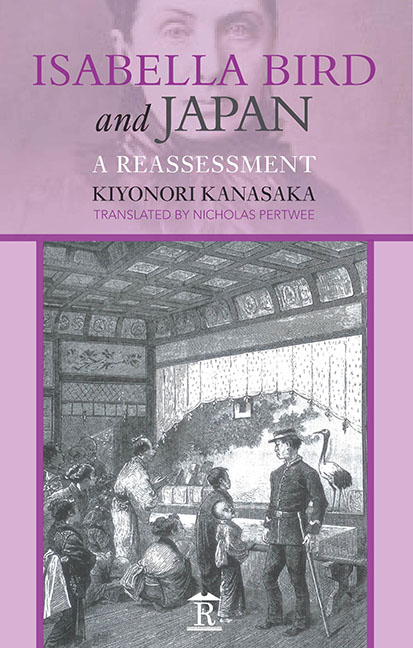Book contents
- Frontmatter
- Dedication
- Contents
- Foreword
- Author’s Preface to the English Edition
- Translator’s Preface
- Preface to the Japanese Edition
- Maps of Isabella Bird’s Travels in Japan (Figs 1–3)
- Chapter 1 Interpreting Bird’s Travels and Unbeaten Tracks in Japan
- Chapter 2 Isabella Bird – A Life of Travel
- Chapter 3 Aspects of Bird’s 1878 Visit to Japan
- Chapter 4 Access and Support in Japan
- Chapter 5 The Legacy of Bird’s Stay in Japan
- Endnotes
- Postscript to the Japanese Edition
- Chronology: The Life of Isabella Bird
- Bibliographies
- Index
Foreword
Published online by Cambridge University Press: 06 May 2022
- Frontmatter
- Dedication
- Contents
- Foreword
- Author’s Preface to the English Edition
- Translator’s Preface
- Preface to the Japanese Edition
- Maps of Isabella Bird’s Travels in Japan (Figs 1–3)
- Chapter 1 Interpreting Bird’s Travels and Unbeaten Tracks in Japan
- Chapter 2 Isabella Bird – A Life of Travel
- Chapter 3 Aspects of Bird’s 1878 Visit to Japan
- Chapter 4 Access and Support in Japan
- Chapter 5 The Legacy of Bird’s Stay in Japan
- Endnotes
- Postscript to the Japanese Edition
- Chronology: The Life of Isabella Bird
- Bibliographies
- Index
Summary
IN THE NINETEENTH century following the end of the Napoleonic wars the world beyond Europe became more accessible and safer to visit. The Grand Tour traveller became a ‘globe-trotter’.
In Victorian Britain women who began to fight for their rights were not to be deterred from foreign travel by discomfort and risk. One of the most interesting, persistent and intrepid of Victorian women travellers was Isabella Bird who despite frequent ill-health covered most of Asia in her journeys. These she described in a series of books that attracted a wide readership. Her most famous work Unbeaten Tracks in Japan, which was first published in two volumes in 1880, has been frequently reprinted, often in abbreviated form, and translated into other languages including Japanese.
Emeritus Professor Kiyonori Kanasaka of Kyoto University who has produced a full Japanese translation of this and other works by her became fascinated by her personality and her books. He visited as many of the places to which she had travelled as possible and photographed the scenes as they now are comparing them with how they had been in Isabella's time. This led to his compilation of photographs entitled In the Footsteps of Isabella Bird: Adventures in Twin Time Travel. He also undertook detailed research into the background to Isabella's first and longest visit to Japan. This research led to some valuable historical insights which he explains in this book.
Professor Kanasaka became convinced that Isabella Bird's journeys in Japan were instigated and carefully planned by Sir Harry Parkes, the British minister to Japan from 1865 to 1883. Parkes persuaded Japanese ministers to provide valuable assistance to Isabella Bird in her travels in the quaintly named ‘interior’.
Kanasaka concludes that Parkes was convinced that Isabella Bird with her perceptive eye and descriptive ability would contribute in a unique way to British understanding of the development of the new Japan and its traditional culture to which Parkes arranged that she was introduced.
Parkes wanted to ensure that Britain, which had the largest number of foreign merchants in the Treaty Ports and provided the largest number of foreign employees of the Meiji government, retained its position as the most influential foreign power in the new Japan.
- Type
- Chapter
- Information
- Isabella Bird and JapanA Reassessment, pp. xi - xiiiPublisher: Amsterdam University PressPrint publication year: 2017



